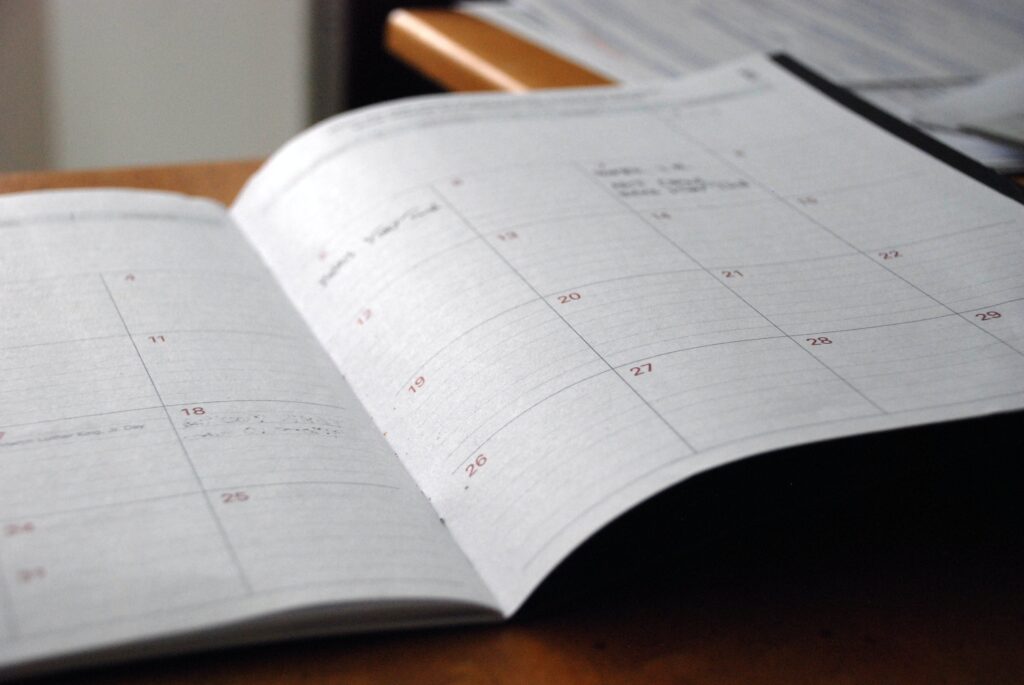Looking to apply for a divorce and need to know how to do it? Applying for a divorce is simpler now than it used to be, but that doesn’t make the process seem any less daunting.
Deciding to get a divorce is a big step, it is the first step toward the next chapter in your life.
If you’ve decided to get a divorce, it can be helpful and reassuring to find out a little more about the process before you get the ball rolling and begin filling out the application form.
Most people use the services of a divorce solicitor to make the process as fast, fair, and pain-free as possible.
In this article, we will provide a simple step-by-step guide to applying for a divorce and the legal process that it involves.
Who can get divorced?
According to Government advice, you can apply for divorce in England or Wales providing all the following statements are true:
- you’ve been married for over a year.
- your relationship has permanently broken down.
- your marriage is legally recognised in the UK (including same-sex marriage).
If you have been married for less than a year, then you cannot get a divorce yet, but you can separate from your partner if you wish to.
If you are in a civil partnership then you should apply for a dissolution rather than a divorce, but the process is much the same.
Grounds for divorce
Applying for a divorce is now simpler than it once was. In April 2020, the law in England and Wales changed and no-fault divorce laws came into effect.
There is no longer any requirement to point the finger of blame when applying for a divorce.
Before the no-fault law was introduced, those applying for a divorce had to choose from one of five reasons when applying for divorce: adultery, unreasonable behaviour, desertion, separation for more than 2 years, or separation for more than five years.
Now, the only requirement is that both parties confirm that the marriage has ‘irretrievably broken down’. This simply means that your marriage has ended and cannot be fixed.
Should you use a divorce solicitor?
When applying for a divorce, you will need to decide if you wish to use the services of a divorce solicitor.
Whilst you do not have to use a solicitor to get a divorce, the process can be a long and complicated one, especially if there is anything that you and your spouse do not agree on, if your financial situation is very complex, or if your case is particularly sensitive.
Areas that a divorce lawyer can provide you with expert advice about include:
- How to fairly split assets when one partner is financially dependent on the other.
- Splitting pensions, business interests, trusts, and overseas assets.
- How to split debts.
- Deciding where children will live.
- Child contact rights.
- Child maintenance.
- Filing for divorce when you have been the victim of domestic abuse.
Key reasons why many people choose to use the services of a divorce lawyer include:
- Simplify and speed up a process that can be stressful and upsetting.
- Ensure that a fair financial settlement is reached.
- Receive expert advice.
- To represent them in court.
- To communicate with their partner so they don’t have to.
Here at Freeman Jones Solicitors, we have provided numerous clients from in and around Chester with expert divorce and separation advice, helping them to achieve a fair divorce settlement, and making the process of applying for a divorce as simple and pain-free as possible.
To speak with one of our specialist divorce lawyers, why not give us a call on 01244 506 44 to book a free 30-minute consultation to discuss your circumstances and find out more about how our team can help you.
What documents do you need to apply for divorce?
To make the application process fast and simple, it’s useful to gather the information and documents you need before filling out the application.
You may be surprised at how little paperwork is required when filling out an application for a divorce.
The information and documents that you will need to hand are:
- Your marriage certificate.
- Your partner’s details (name, address, and email address).
- The details for your partner’s solicitor (if they’re using one).
How to apply for a divorce
If you’ve made the decision to get divorced and are ready to start a new chapter of your life, then it’s time to fill out the divorce application.
You can either complete your application online or get a paper application to fill out, it’s completely down to your personal preference which option you choose.
If you are using a divorce solicitor, then they can help you with the application.
The online application is completed on the Government website here. Alternatively, you can download and print a paper application or visit your local court to pick one up. The form is called ‘Form D8 – Application for a divorce or dissolution’.
There are two different ways to apply for divorce, you can either make a sole application or a joint application. The right way for you and your spouse will depend on your circumstances.
Sole application
A sole application is made by one party alone, whilst a joint application is made by both parties.
When a sole application is made, one party serves the application to the other party who must then file a response.
In a sole application, the person applying for the divorce is referred to as the applicant, and the other party is the respondent. The applicant serves the divorce application to the respondent.
Joint application
Joint applications for divorce were brought in as part of the no-fault divorce reform in April 2020 in a bid to encourage more amicable divorces.
A joint application is made together by both parties. This kind of application should only be made if you both agree about getting divorced and the financial arrangements that are to be made.
Making a joint application means that both people can prepare emotionally for the divorce and are fully involved in the process so that it doesn’t come as a nasty surprise for either person.
If you submit a joint application, but then you or your partner decide that you wish to change it to a sole application, then it is possible to change it to a sole application when applying for the conditional order.
What happens after I apply for a divorce
What happens after your application for a divorce has been submitted depends on whether you applied with a joint or sole application.
After a joint application has been submitted
Once your application has been received and checked, you and your partner will both receive notification that your application has been issued, a copy of the application, and a case number.
You and your spouse are both then required to confirm receipt of the proceedings within 14 days of receiving them.
You must then wait 20 weeks before you can continue with the divorce, this time is a reflection period that gives both people a chance to change their minds or make arrangements for the future.
After the 20 weeks have elapsed, you can jointly apply for a conditional order (previously known as a Decree Nisi). The conditional order confirms that you are eligible for a divorce.
Serving the papers (sole applications)
After the court receives a sole application for a divorce they will send a copy of the divorce application to the respondent, this is referred to as ‘serving divorce papers’.
When the applicant fills out the application, they are required to provide a valid email address for the respondent. The court will then email the respondent a link so that they can view the application online. Both parties should also receive notification of the application through the post.
The respondent should then respond within 14 days to acknowledge they have received the service and state whether they accept or disagree with the application for divorce.
The only grounds under which they can dispute the divorce are:
- The marriage is not valid.
- The marriage has already legally ended.
- The court does not have jurisdiction to deal with the divorce.
Once the respondent has accepted the application for divorce, the rest of the proceedings are the same as with a joint application.
The conditional order
After the 20 weeks have elapsed, you can apply for a conditional order (previously known as a Decree Nisi). The conditional order confirms that you are eligible for a divorce.
Once you have applied for a conditional order, your request is reviewed by the court and, if approved, a Certificate of Entitlement is issued.
Once you have your conditional order, you can send your financial agreement to the court to be approved if you have one.
Final Order
Once you have the Certificate of Entitlement, you must wait for six weeks and one day before you can apply for a final order (once called the decree absolute). You should not wait any longer than 12 months before applying for the final order.
Once your application has been received and approved by the court, a final order will then be issued, confirming that your divorce is complete.
How much does a divorce cost
Divorce is made up of two costs: legal fees and the cost of the divorce.
The cost of a divorce in the UK is £593, this cost is a court fee and is either paid by the sole applicant or shared between both parties.
The cost of a divorce solicitor varies depending on the solicitor that you use and how complicated your case is/how much time the solicitor spends working on your case.
If possible, you should discuss with your partner who is going to pay the costs before applying for the divorce. If you cannot agree, then you can apply to the courts to decide for you. It’s worth noting that you would need to apply separately for this service and pay another fee.
Sometimes it is possible to receive help with the cost of the court fee if you are currently receiving benefits or are on a low income.
You can find out if you are eligible to help with paying the court fee by checking the criteria on the government website here.
If you decide that you are eligible, then you should apply for the funding before you make your divorce application. You can apply for funding online or by downloading and printing a paper version of the form.
The form you require to apply for funding is the Form EX160 Application for help with court and tribunal fees.
Once you have applied, you will be given a reference number that you can put on your divorce application form so that you don’t have to pay the fee upfront.
Freeman Jones Solicitors Divorce Lawyers
Here at Freeman Jones Solicitors, our team of divorce solicitors provide expert legal advice to clients from Chester and the surrounding areas that are going through a divorce.
We offer:
- A free 30- minute initial consultation.
- Straightforward, competitive prices with no hidden costs.
- A proven track record of success in divorce cases.
- A consistently high standard of service.
Our team of divorce solicitors are here to offer straightforward, expert legal advice and help you to achieve the best financial outcome from your divorce.
For more information about our services, or to book a free 30-minute consultation, give our team a call on 01244 506 444.






